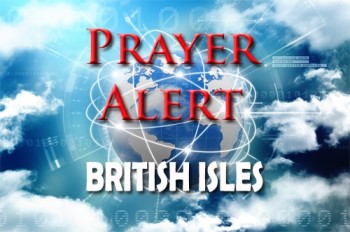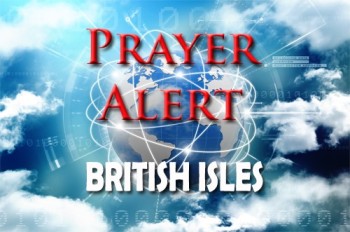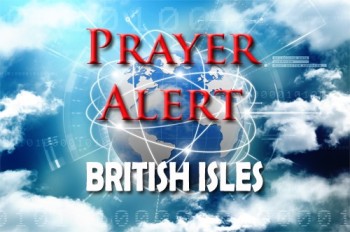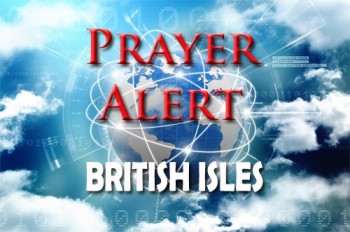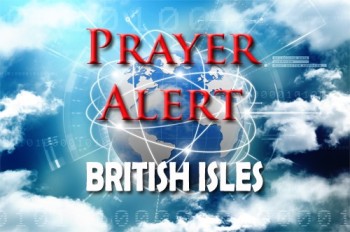Displaying items by tag: Mental Health
Justin Bieber says God’s grace has transformed his life
Amid public concern over his mental health, Justin Bieber has shared deeply personal reflections on Instagram about how God’s grace has transformed his life. The 31-year-old artist opened up about his past struggles with anxiety, fear of failure, and a relentless need to earn love and acceptance - feelings that left him restless and insecure. Bieber credited God’s grace with liberating him from those burdens, saying it shifted his identity from striving to belonging, from fear to trust. He described experiencing God’s love as being fully accepted, without shame or accusation. Emphasising that this love cannot be earned but only received, Bieber encouraged others to stay rooted in God’s internal work rather than external expectations. He warned against confusing pressure with the voice of Jesus, who leads gently, never with force. Fans and peers, including Bear Grylls, praised his openness. Bieber acknowledged past flaws and the pull of fame but expressed a desire to grow, serve, and advocate for love, truth, and equality.
Jenkyns clashes with Farage on children with special needs
Reform UK’s Greater Lincolnshire mayoral candidate, Dame Andrea Jenkyns, has publicly distanced herself from comments made by party leader Nigel Farage regarding special educational needs (SEND). Farage recently claimed that many childhood SEND and mental health diagnoses are being made too readily, often via virtual consultations, suggesting an overdiagnosis trend. In contrast, Dame Andrea, who has ADHD and whose son also has the condition, highlighted her personal experience and highlighted the long delays many families face in obtaining assessments and support, often resulting in children falling far behind in school. She stressed that not all party members must agree on every issue, and described pulling her son out of mainstream education because he was two years behind. Her remarks underscore ongoing national debates around SEND provision, access to diagnoses, and support for neurodiverse children. In related news, spending on disability benefits for anxiety and depression has doubled since the pandemic: see
NHS billions wasted as bipolar patients left 'forgotten and failed'
Experts warn the UK is wasting billions annually by failing to diagnose and care for people with bipolar disorder. An estimated one million people live with the condition, yet many are misdiagnosed, undertreated, or entirely overlooked. Patients have undergone years of suffering, misdiagnosis, and crisis before they finally received proper care. New data put the cost of bipolar-related care and economic loss at £9.6 billion a year. Yet experts say that with early diagnosis, consistent medication, and specialist care programmes, hospital admissions could be dramatically reduced and lives transformed. One model in South London has seen readmission rates drop by 80%. Despite the evidence, care remains patchy and specialist services limited. Campaigners and clinicians are urging a national care pathway and greater access to psychiatrists to stop the cycle of crisis and neglect, calling the current situation both a human tragedy and a financial folly.
Half of disability benefit rise since Covid is due to mental health
New analysis reveals that over half of the rise in disability benefit claims since Covid is due to mental health conditions, including depression, anxiety, and behavioral disorders. The number of working-age adults on sickness benefits has surged by nearly a million, with 2.9 million now receiving disability benefits. The Institute for Fiscal Studies (IFS) warns of a real decline in mental health, pointing to increased NHS mental health referrals, antidepressant prescriptions, and a 24% rise in 'deaths of despair' - including suicides and drug-related fatalities. The government is considering £5 billion in cuts to disability benefits, arguing the system is unsustainable. However, mental health experts caution that reducing support could worsen financial hardship and increase suffering. Critics argue that addressing root causes such as economic stability, job quality, and early mental health intervention is key to tackling this crisis. As mental health struggles continue to rise, prayer is needed for wise leadership and compassionate solutions for those affected.
Calorie labelling could make eating disorders worse, study suggests
A new study published in the British Medical Journal has warned that calorie labelling on menus may worsen eating disorders, despite policies focusing primarily on reducing obesity. Findings suggest that calorie labels can trigger harmful behaviour, including food avoidance, increased anxiety, and obsessive calorie tracking. One US study found that individuals with anorexia or bulimia selected meals with an average of 550 calories when calorie labels were visible, compared to 1,615 calories without labels. Another UK study found that 55% of participants with eating disorders reported worsening symptoms due to calorie information. Experts and charities, including Beat, are urging policymakers to consider the mental health impact of such measures. While the Government defends calorie labelling as part of its Ten-Year Health Plan, critics argue that its benefits are minimal and that eating disorder support should be prioritised over ineffective policies. See
Uganda: mental health crisis at refugee camps
The mental health crisis at Kiryandongo refugee camp is escalating, with suicides and suicide attempts surging. Between January and October 2024, 41 suicides and over 130 attempts were recorded, highlighting the profound psychological distress faced by refugees. Many are haunted by memories of past trauma, such as bombings. These ongoing fears disrupt daily life and contribute to widespread mental health struggles. Despite the existence of psychosocial support programs, resources at the camp are insufficient to meet the overwhelming demand. With over 1.7 million refugees in Uganda, local healthcare services are under immense pressure, but specialised care is often inaccessible due to high costs. The UNHCR is calling on governments, the private sector, and international donors to increase funding for mental health programs to address this urgent need.
USA: call for more help for stressed parents
Vivek Murthy, the US surgeon general, has issued a public health advisory addressing the growing mental health challenges faced by parents due to modern stresses. He is urging government bodies, businesses, and community organisations to bolster support for parents and caregivers. Among his key recommendations are expanded funding for parental support, the establishment of a national paid family and medical leave programme, ensuring paid sick leave, and increasing access to affordable mental health care for caregivers. Improving parents' mental health is crucial for addressing the broader youth mental health crisis. He also calls for employers to provide stress management training and for healthcare providers to screen parents for mental health conditions. He says that 48% of the nearly 63 million parents and caregivers in the USA report feeling overwhelmed and lonely, particularly single parents.
British diver gives glory to God after winning medal
British diver Andrea Spendolini-Sirieix gave glory to God after winning a bronze medal at the Olympics. Spendolini-Sirieix, 19, and Lois Toulson, 24, were competing in the women's synchronised 10-metre event. She said In an interview, 'I'm so happy. I usually have so much to say; I don't have anything to say today. Having my family here, doing it alongside Lois, it's been a crazy two years. I give glory to God.' The duo's final dive surpassed competitors from Canada, with China winning gold and North Korea silver. Despite finishing sixth in the individual 10-metre platform dive, Spendolini-Sirieix remained positive, reflecting on her journey from severe mental health struggles after the 2020 Tokyo Olympics. She emphasised her faith, stating, 'It was just God's way of saying we've still got a lot more to do, and I just give God all the glory.'
Chris the Iceman put his sins on ice
Chris, known at Speaker’s Corner as ‘The Iceman’, once struggled as a 13-year-old indulging in heavy drinking. Raised agnostic, he followed friends into dangerous behaviour, leading to alcohol abuse and deep depression. By 14, his drinking got so bad that once he passed out and was carried home. His relationships deteriorated, and he became isolated and suicidal. At 17, recalling his childhood happiness tied to his belief in God, he prayed for help, experiencing a profound sense of divine love. Embracing Christianity, Chris transformed his life, cutting ties with negative influences and diving into apologetics. He improved his relationships with his family and joined the Christian Union in college, where he found a supportive community. He now debates Muslims at Speaker's Corner, sharing his journey from despair to faith and purpose. His story is a testament to the transformative power of faith and the impact of a supportive community in overcoming personal struggles.
NHS computer issues linked to patient harm
IT system failures in the NHS have been linked to three patient deaths and over 100 instances of serious harm, according to a BBC investigation. A Freedom of Information request revealed that 200,000 medical letters went unsent due to computer problems. Nearly half of hospital trusts with electronic patient systems reported problems potentially affecting patient care. Despite a £900m investment in improved systems, many hospitals face significant challenges with their electronic patient record (EPR) systems. A tragic case involves 22-year-old Darnell Smith, whose vital signs were not monitored due to a computer system failure. He died from pneumonia after his care plan was not visible to staff. Coroners have warned of the risks posed by these IT failures, emphasising the need for reliable technology. The Royal College of Emergency Medicine called these findings 'shocking and deeply worrying.' NHS England acknowledges the importance of high-standard EPR systems and is working with trusts to address these issues and ensure patient safety.

